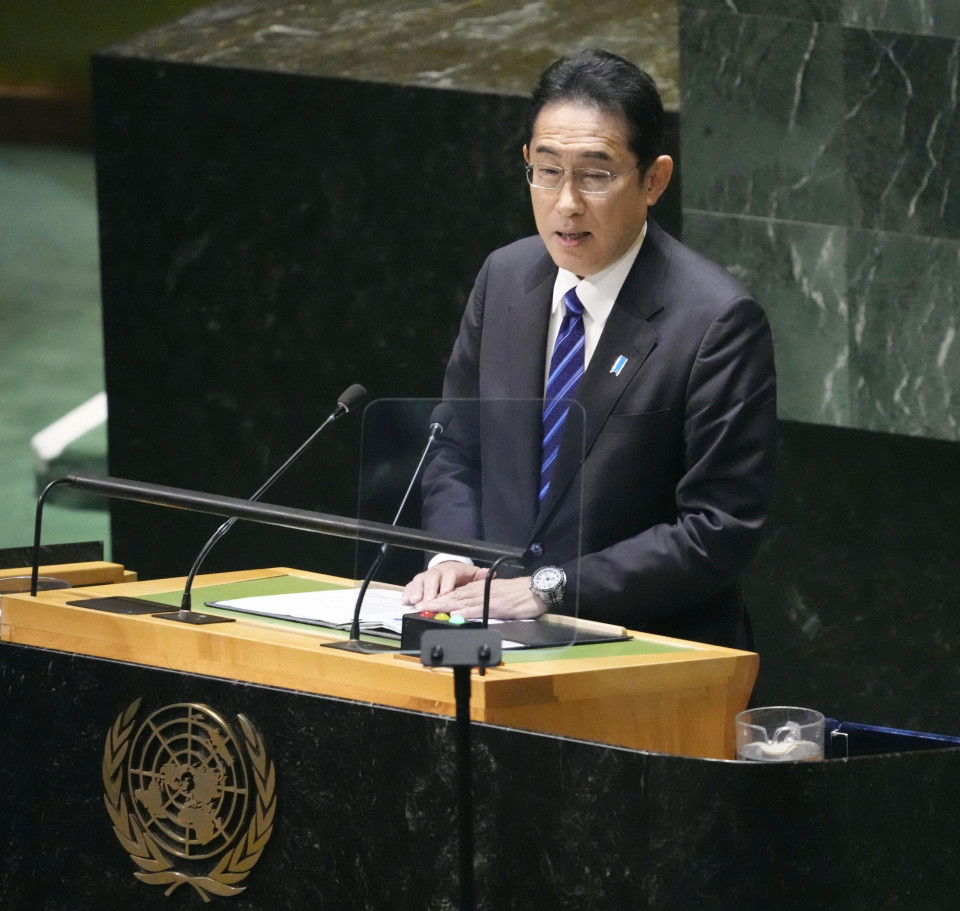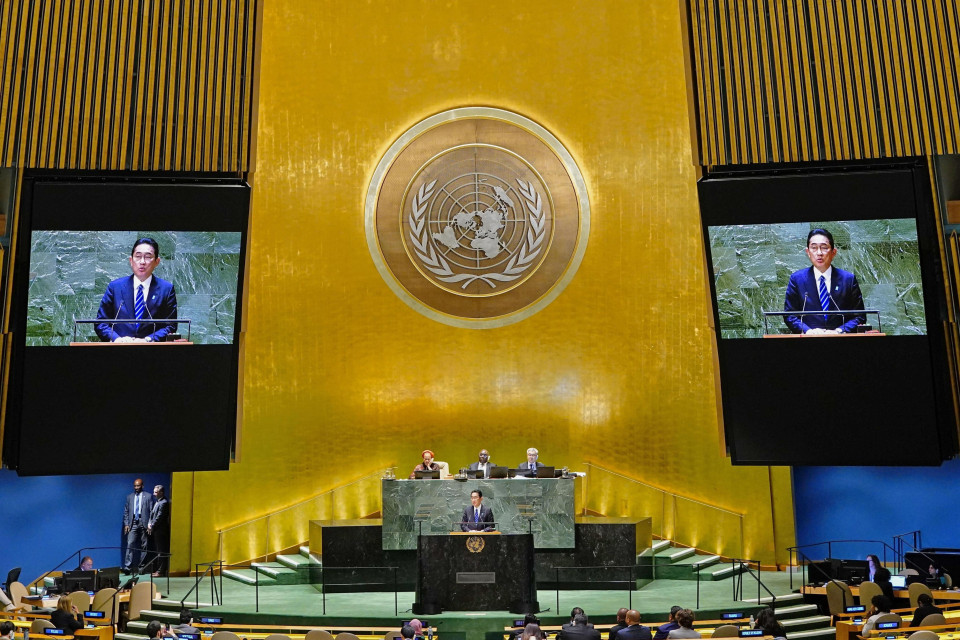Prime Minister Fumio Kishida pledged Tuesday that Japan will contribute 3 billion yen ($20 million) to help achieve a world without nuclear weapons, a goal he has described as his life's work as a lawmaker representing a constituency in Hiroshima.
Addressing the U.N. General Assembly in New York, Kishida also said Japan will continue making efforts to reform the world body. His remarks came amid perceptions that the United Nations has become increasingly dysfunctional in tackling international disputes, especially over the Ukraine war launched in February 2022 by Russia, a veto-wielding permanent member of the U.N. Security Council.

To advance the global trend toward nuclear disarmament, a multifaceted approach is essential, Kishida said, adding Japan will provide the financial support for global research institutions to build a network for denuclearization in the world.
As Japan holds the presidency of the Group of Seven major economies this year, Kishida hosted the summit in May in the western Japan city, devastated by a U.S. atomic bomb in 1945, amid fears that Russia might use a nuclear weapon against Ukraine.
Following the three-day summit in Hiroshima, where Ukrainian President Volodymyr Zelenskyy made a surprise appearance, Kishida said the G-7 leaders agreed to work toward a world without nuclear weapons. The city is the site of the world's first nuclear attack.
In his speech, Kishida also stressed the importance of creating a world focused on collaboration rather than division and conflict, as the international community has split into two groups -- Western democracies and what they call autocratic ones.
Kishida condemned Russia's invasion of Ukraine, urging Moscow to swiftly rectify human rights violations and cease nuclear threats.
Regarding North Korea's nuclear and missile development programs, Kishida said Japan remains willing to normalize relations with Pyongyang based on a declaration signed by the leaders of the two countries in 2002. Tokyo and Pyongyang do not have diplomatic ties.
Kishida reiterated his eagerness to hold a summit with North Korean leader Kim Jong Un without conditions to settle the long-standing issue of abductions of Japanese nationals by North Korea in the 1970s and 1980s.
As nations should jointly resolve global matters, human-centered cooperation has to be promoted, said Kishida, adding it is necessary to place emphasis on high-quality and sustainable economic growth.

For that purpose, Japan will implement measures to challenge income disparities and accelerate women's social advancement in terms of gender equality, Kishida said.
Around a month after the G-7 summit, Japan's parliament enacted legislation to enhance understanding of sexual minorities. The country has lagged behind other major economies in accomplishing gender equality in management-level posts.
The Asian nation ranked 138th out of 146 countries with regard to gender equality in politics, the World Economic Forum, a Swiss-based think tank, reported earlier this year.
In a Cabinet reshuffle last week, Kishida appointed a record-tying five women as ministers, including Yoko Kamikawa who became Japan's first female foreign minister in about 20 years.
As for U.N. policy, Japan has long expressed its desire to become a permanent member of a reformed Security Council. The nation secured a nonpermanent seat on the 15-member council in June 2022 for a record 12th time, with its two-year term beginning in January.
The U.N. General Assembly, consisting of 193 countries, holds an election every year for half of the 10 nonpermanent seats, which are allocated according to geographical region, with Asia having two slots. Nations are not allowed to seek back-to-back terms.
Earlier this year, Japan filed its candidacy for a vote to join the Security Council as a nonpermanent member for a two-year term starting 2032.
Related coverage:
Atomic-bomb survivors' kin race against time to preserve family histories
G-7 leaders' Hiroshima museum messages go on public display
Special feature: How an Atomic Bomb Destroyed a Girl's Life










